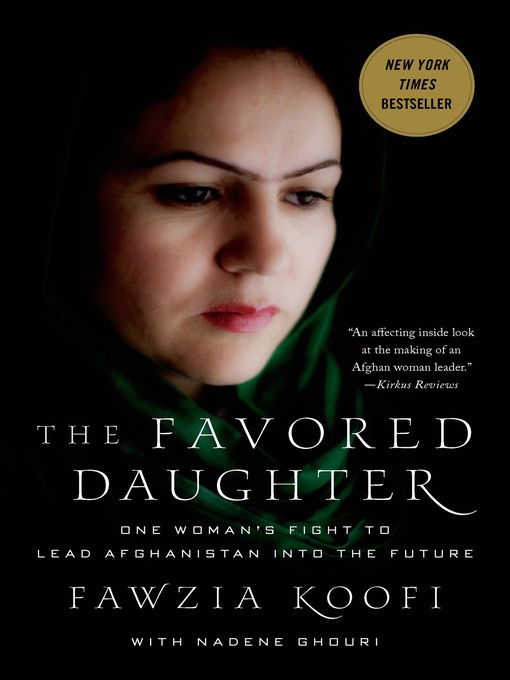
The Favored Daughter
One Woman's Fight to Lead Afghanistan into the Future
کتاب های مرتبط
- اطلاعات
- نقد و بررسی
- دیدگاه کاربران
نقد و بررسی

October 24, 2011
Koofi, Afghanistan’s first female parliament deputy speaker, tells her heartbreaking life story and, through the letters she writes to her two daughters, shares her hopes for their future, which are interspersed throughout the book. The unwanted 19th daughter of an MP of Badakhshan—one of the country’s poorest, wildest, and most remote provinces—Koofi learns early on how difficult it is to be female in Afghanistan’s patriarchal society, where wives of poor rural farmers are considered less valuable than the goats they tend. She grows up among her extended family (until her father’s assassination in 1978 results in her eventually moving to Kabul with her mother and becoming the first girl in her family to attend school). Set against Afghanistan’s war-torn history—the invasion of the Soviets, the mujahedeen’s civil war, the brutality of the Taliban—Koofi’s amazing life reveals itself in a series of candid chapters. Coming of age as the Taliban takes control, she’s forced to interrupt her medical studies and witness her country’s regression to the “Dark Ages.” She flees to her native province, eventually becoming an MP in Hamid Karzai’s new government, where she represents the same people her father did. Highlighting the resilience, values, and culture of the Afghan people, this moving narrative provides an evocative portrait of a battered country as it pleads with the world’s powers not to abandon the fight and risk the government’s fragile stability.

November 1, 2011
An affecting inside look at the making of an Afghan woman leader, in spite of the repression by traditional Islamic society and the Taliban. As her father's 19th child out of a total of 23, and to his second wife out of eight, Koofi learned from an early age that girls were valued very little in the harsh, mountainous, rural Badakhshan province of Afghanistan, where her father was a tribal leader and member of Parliament. In 1978, when Koofi was nearly four, her father was shot by the mujahideen, forcing the author, her mother and other relatives to flee and take refuge with her older brothers. Eventually her mother allowed her to go to school, the first girl in her family to do so. Koofi studied medicine as civil war tore apart the country. With the arrival of the Taliban in 1996, the author's dreams of going to medical school were eclipsed. Her brother, the chief of police, went into hiding, and her own new husband was periodically imprisoned. "No more progression," she writes of this desperate period, "only the darkness of the uneducated men who now ruled our land." Returned to the safety of her home province, her husband dying of tuberculosis and her two young daughters needing care, Koofi gravitated toward teaching English and community-outreach work. By 2003, with the Taliban gone and hope restored in her country, she garnered the support of her male family members to be the one to represent her district in the new Afghan Parliament. Her election and success fighting corruption and promoting women's issues have set her up as a presidential contender—and a strong leader to watch. In her final chapter, the author offers advice for the international powers overseeing her war-town nation—e.g., do not withdraw "before the job is finished." With moving letters to her daughters opening each chapter, Koofi delivers an important message.
(COPYRIGHT (2011) KIRKUS REVIEWS/NIELSEN BUSINESS MEDIA, INC. ALL RIGHTS RESERVED.)

























دیدگاه کاربران